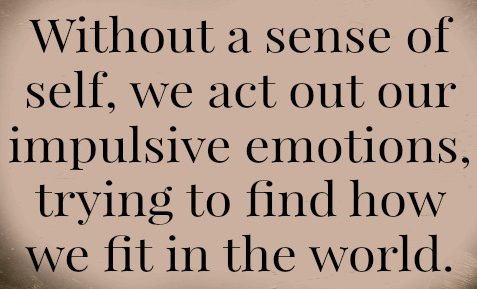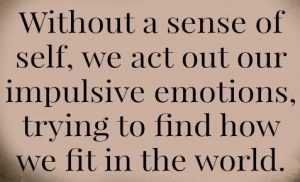Originally posted 2011-05-14 05:00:06.
If you have been involved in either therapy or counselling, or spirituality and meditation, in recent years you have probably encountered two basic, polarized viewpoints concerning personality. Essentially it amounts to this: therapists are pro-personality (and its improvement through healing neurosis etc.) while spiritual teachers proclaim personality a big waste of time, since neurotic or not, you are more than your personality.
This is not particularly surprising, since therapy and counseling tend to be concerned with the individual, while spiritual practices are concerned with higher matters. But it does lead the novices and beginners into a quandary where they are faced with the decision of what to do about personality. On the one hand, therapy could be an expensive, futile effort to better the personality, whereas, on the other hand, spiritual practice may offer an excuse to leave personal problems behind, with the justification that you are moving on to more lofty concerns.
In the extensive time I have been engaged in therapy and spirituality I can say that I have discovered the answer to this controversy! And I don’t say it without reluctance and a certain caution, since my answer is liable to offend both camps — therapists and spiritual teachers. Perhaps my answer is less a rejection or abandonment of one viewpoint for another and more of a synthesis. This may be an answer of the best kind – the kind that doesn’t marginalize or dismiss anyone’s experience or viewpoint. For my answer, while radically new and innovative, does not fundamentally disagree with either point of view, but considers each appropriate to the complex, total unfolding process of our human nature and potential.
My answer to the dilemma is to propose a third band of human experience. I call this “the authentic self” and since I am not using any unusual words I need to define this term, because I do mean something specific. The authentic self, in the way I use the term, is the bridge between the personality and the spiritual self. It is arrived at usually, but not always, after a lengthy period of intensive, deep, applied and consistent inner work. This inner work consists of a journey of self-discovery in which one circumvents the self, becoming increasingly aware of the conscious and unconscious material that comprises one’s sense of self, or ego. This involves character, which is essentially defensive strategy or an intelligent, protective reaction to early conditioning, which becomes increasingly calcified and adapted throughout adolescence and adult life. Character is composed of the way in which we survive and protect ourselves from inner and outer stimuli and ultimately avoid really meeting life. It creates a self-imposed prison — limitations in which we feel falsely safe.
Self-discovery also involves cultivating our awareness of personality, or the way in which character (defenses and strategies) is experienced. Both inwardly and outwardly we erect a barrier to experience — life events and other people — which is a mask, façade or persona which eclipses the real person, or our true nature.
We also raise emotional and behavioural patterns out of the murky stratum of the unconscious, out of unawareness, and see just how much our life is lived automatically, as an automaton without real human response, emotional feeling, resonance, empathy or even awareness.
The process of self-discovery involves witnessing, reliving and remembering, practicing awareness and releasing pent-up emotions, returning the bodymind, through self-regulating, self-healing and self-referral, to a natural state of balance, ease and relaxation, and opening to insight and experience. In the short-term the experience is enriching, enlivening and full of dramatic changes. In the long-term through achieving personal wholeness, soul nourishment and insights we reach a threshold, a bridge, a chasm – all variously transitional metaphors that signify a quantum leap, a fourth dimensional change that I have termed “the threshold of transformation”.
The significance of this threshold, and what distinguishes it from all the changes that have gone before, is that is effects are irreversible — it is a step from which there is no going back. Once taken, this step across the threshold will lead you to the condition of authenticity and intimacy with your own true nature.
This insight renders the controversy about personality redundant. But it does depend on our ability to clearly distinguish the psychological from the spiritual.




